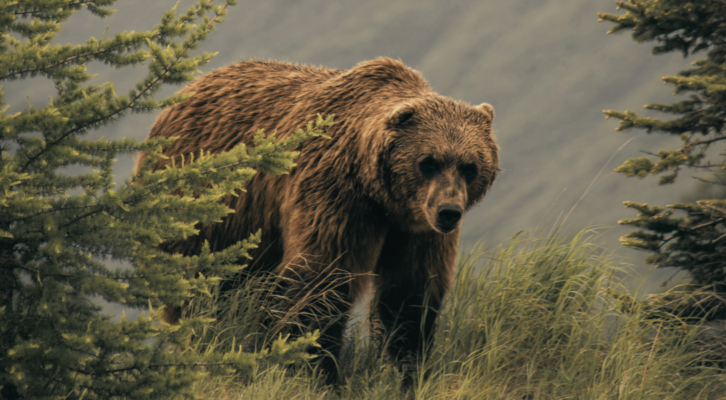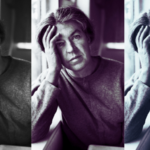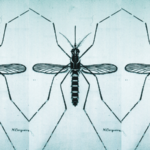Mark was once the world’s deadliest assassin, working for a clandestine group called the Agency. His alias, the Pale Horse, struck fear into the heart of anyone who heard it and knew what it meant: that death was both imminent and guaranteed.
But then something happened, and Mark decided he didn’t want to kill people anymore, so he joined a 12-step program for reformed killers. It’s patterned after Alcoholics Anonymous, but tweaked a little for their particular kind of affliction.
It doesn’t have to be a substance to be addictive; gambling and sex are addictive. Studies have shown similarities in brain structure between addicts and killers. This was a pathway to telling a story about regret, the desire to change, and making amends.
It’s weighty subject matter… which is why I made a deliberate decision, early in the process, to make Mark funny.
I wanted to underscore that he was sweet and charming. I figured that would make him good at his job. The ability to win people over and talk your way into places is probably a useful skill for an assassin to have.
But also, this book is rooted in recovery, so it stands to reason that, at some point, Mark will hit a rock bottom. What does rock bottom look like for a professional killer?
I knew what that moment arrived, when Mark did something so terrible he quit, and the reader didn’t love him—they’d walk away.
Humor is one of the sharpest tools in a writer’s arsenal. If you can make your reader laugh, they’ll trust you and your characters. Once that trust is established, you can take the reader anywhere.
Because laughter opens us up to a deeper level of emotionality and vulnerability. It feels good, it releases endorphins, but it also offers us a pressure release valve—a well-placed joke can diffuse tension or punctuate a moment.
It can also tell you a lot about a character. Humor is how we relate to things around us, and sometimes, how we cope with them. Laughter is often our best defense mechanism against the ruthless furnace of the world; a declaration that we’re not afraid of the things we’re facing.
It’s the foundation of a good friendship, too. Think about three or four of your closest friends. You might be close to each one for a different reason, but I bet the common denominator between them is: they make you laugh.
It’s about trust, on so many levels.
One might say that by introducing levity into this kind of subject matter, I risk undercutting the seriousness of the message. But I think it amplifies the emotional weight. It makes the characters more human, and the more human they are, the more the reader can relate to them.
James Gunn is a master of this. He directed the Guardians of the Galaxy movies, in addition to The Suicide Squad and the Peacemaker TV show. Those are all comic book properties, and therefore, ostensibly, in the action genre.
But they’re also ensemble stories about disparate groups of people—all of them extremely powerful, larger-than-life characters—who realize they’re stronger together than apart.
And Gunn makes them silly. Some of them are outfight goofballs. This serves to make them more human. He makes us laugh with them, and sometimes at them. After a little while, they feel like our friends, rather than just actors playing dress-up on a soundstage.
Then, by the time we reach their big emotional moments, they land like body blows.
Gunn’s characters have revealed themselves to be human, with their fears and insecurities and their senses of sly humor, so we trust them.
And we love them. We want them to succeed.
We’re part of the group now; in on the joke.
I wouldn’t call Assassins Anonymous a comedy. To me, the book is about what happens when you make a conscious decision to change but need to reckon with the wreckage of your past.
But there’s no reason we can’t share a few laughs in the process. If nothing else, that pressure release valve is going to be important amidst the mayhem.
***


















